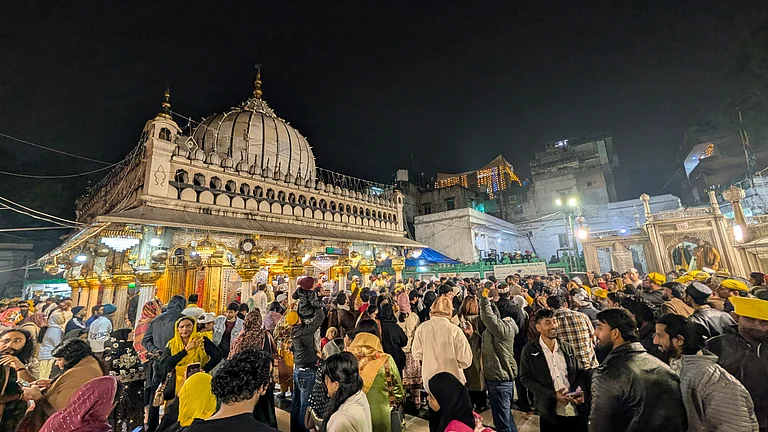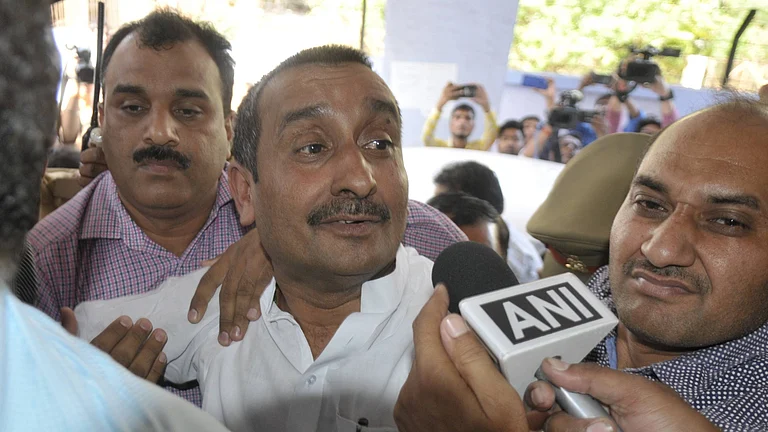Amid unbearable heatwave and unprecedented high temperatures in Delhi, bodies of 50 people belonging to underprivileged socioeconomic backgrounds were recovered around the city over the past 48 hours, police said, amid a spike in casualties and heatstroke cases.
Police and health officials, however, have not confirmed if all of them died of heat-related causes.
Meanwhile, Delhi was expected to get some relief today with the India Meteorological Department (IMD) predicted light to moderate intensity rain for the city and adjoining areas for a few hours on Thursday, June 20, morning.
The Centre for Holistic Development, an NGO working for the homeless, claimed that 192 homeless deaths were recorded in Delhi due to the heat wave from June 11 to 19.
In the national capital, hospitals reported a spike in cases of heatstroke and heat exhaustion and several deaths in the past two days.
Delhi on Wednesday recorded a maximum temperature of 43.6 degrees Celsius, over four notches above the normal. The night temperature in Delhi was 35.2 degrees Celsius, the city's highest in June since 1969, the Met office said on Wednesday.
Deaths Amid Heatwave In Delhi
A senior police officer said the body of a 55-year-old man was found at the children's park near India Gate on Wednesday and added that a post-mortem will be conducted to ascertain the cause of death.
The Centre-run RML Hospital received 22 patients in the last two days. There have been five deaths and 12 to 13 patients are on ventilator support.
"The victims did not have any comorbidities. When such people come to the hospital, their core body temperature is recorded and, if it is found more than 105 degrees Fahrenheit and there is no other cause, they are declared as heatstroke patients," news agency PTI quoted a senior hospital official as saying.
"Those who succumb to heatstroke are declared as 'suspected heatstroke'. There is a committee of the Delhi government that later confirms the deaths," the official said.
To ensure immediate cooling of the body, the hospital has set up a first-of-its-kind heatstroke unit.
"The unit has cooling technology and the patients are kept in baths filled with ice and water. When their body temperature goes below 102 degrees Fahrenheit, they are monitored," the official said.
"If they are stable, they are shifted into the ward. Otherwise, they are put on a ventilator. Most of the patients who are admitted are labourers," he added.
Heatstroke Symptoms
The Safdarjung Hospital of Delhi received 60 patients, including 42 who were admitted, with suspected heatstroke. The hospital has reported six casualties, including a 60-year-old woman and a 50-year-old man.
At LNJP Hospital, four patients have died due to suspected heatstroke in the last two days. "There were two deaths on Tuesday due to suspected heatstroke and two more on Wednesday. There are 16 heatstroke patients who have been admitted," said a hospital official.
One of the victims, aged around 39, died during treatment on June 15. He was a motor mechanic who collapsed while working at his shop in Janakpuri. He was brought in with high-grade fever.
-Speaking on heatstroke symptoms, a senior hospital official said patients sometimes collapse due to dehydration.
-They also suffer from very high fever, which causes the body temperature to reach 106 to 107 degrees Fahrenheit, he added.
Heatstroke Measures
The Sir Ganga Ram Hospital in Delhi is reporting 30 to 35 heatstroke cases at its outpatient department daily.
"These include conditions such as heat cramp and heat exhaustion," said Dr Atul Kakar, chairperson of the hospital's Department of Internal Medicine.
He said, heat safety measures include:
Staying hydrated,
seeking shade during peak sun hours,
understanding the signs of heat-related distress
"Healthcare providers are on alert, ensuring prompt and effective treatment to manage and mitigate the impact of rising temperatures on public health," he added.
The heat wave is causing an increase in the prevalence of lupus that affects the skin, joints and kidneys, among other organs. People who have lupus frequently experience flare-ups and aggravated symptoms as the temperature rises.


























